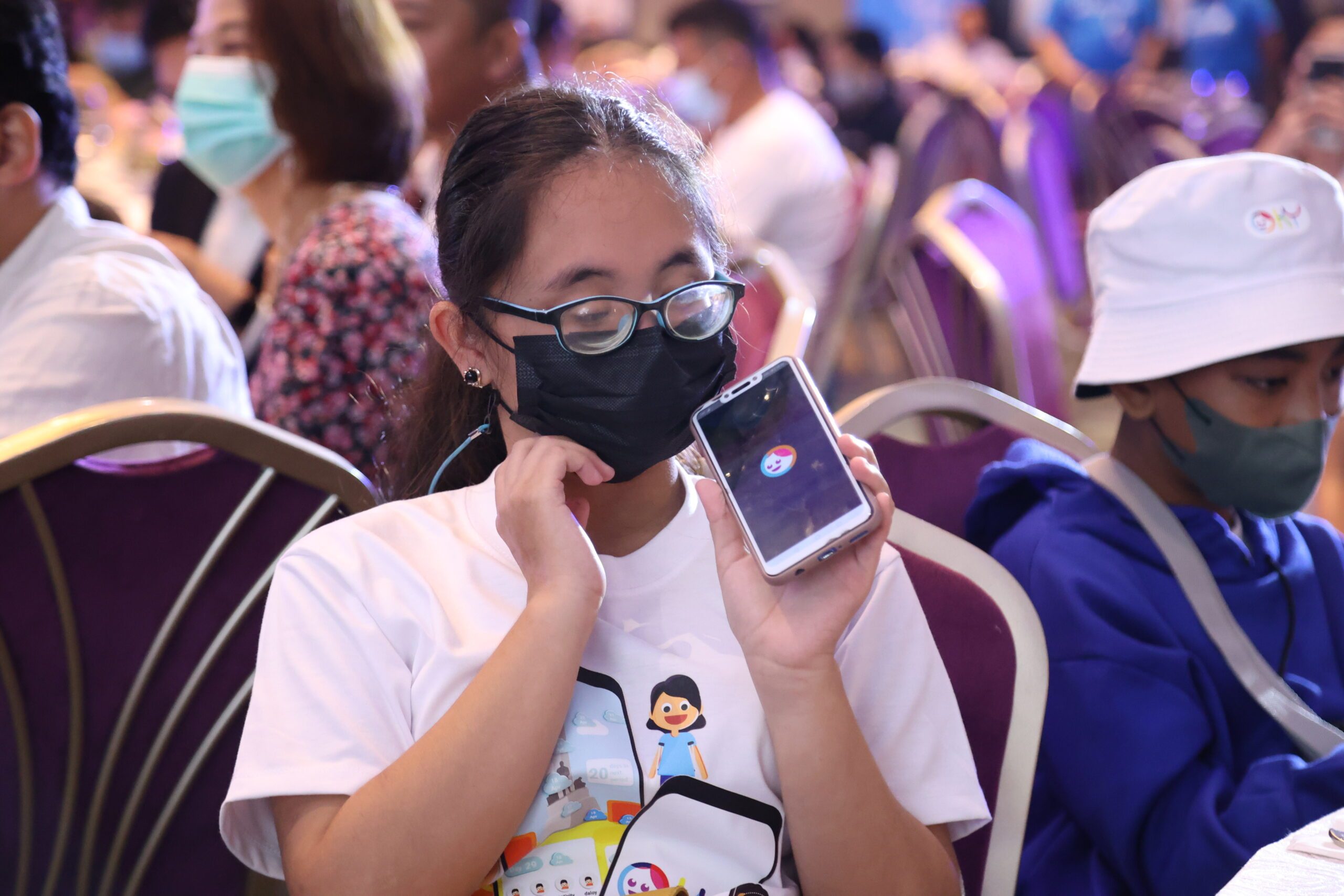How Jeya became instrumental in making a period tracker app accessible for girls with disabilities
Managing one's period is already challenging on its own. More so, for girls who need reasonable accommodation due to disabilities and other conditions. When Jeya, 16, became involved in the development of the Oky period tracker app in the Philippines, she made sure her voice would count for something and pushed for inclusion of accessibility features.

Jeya shows her Oky app / Photo by: Plan International Pilipinas
Sixteen-year-old Jeya is one of the many girls in the Philippines for whom period management continues to be challenging. Despite the existence of local laws supporting universal access to sexual and reproductive health services and information, differing views from local leaders, faith-based organisations, and community members tend to hinder the full implementation of these laws.
In addition, there were not many safe spaces for Jeya and her peers to talk about their individual experiences when it comes to menstruation. Not even parents, Jeya shared during a focus group discussion, were open to such topics, leaving young people like her vulnerable to myths and misconceptions about menstrual health management.
This lack of support is particularly challenging for Jeya who lives with a disability. But when she found the opportunity to speak about her experience during a consultation on the development of the Oky period tracker app, she made sure her voice would count for something.
Advocating accessibility
During the consultation, she, together with a group of other children living with disabilities, proposed app enhancements such as larger font sizes, incorporating graphics and videos, adding text-to-speech or voice-over capabilities, and gamifying the interface for a more engaging experience. Months later as the localised app came into being, many of these recommendations have been integrated into the app, improving its ability to cater to the diverse needs of individuals.
As Jeya gained confidence in using the Oky app, tracking her menstrual cycle has become more manageable and accurate. The app not only empowered her by increasing her understanding of her body but also encouraged her to share this knowledge with her classmates and friends.
“(Through Oky), more people will understand our struggles in navigating adolescence, and we will also gain a better understanding of these changes ourselves,” said Jeya.
As a last note, she reaffirmed the potential of the app to empower children with disabilities, equipping them with the necessary tools to care for and protect themselves, not only in terms of sexual and reproductive health and rights but also in their overall health and development.
About the Oky app
The Oky Philippines app, supported by the Australian Government, is a joint product of the Department of Health, Department of Education, Commission on Population and Development, the National Youth Commission, and the Bangsamoro Government, together with UNICEF and in partnership with Plan International.
Categories: Sexual and reproductive health and rights


